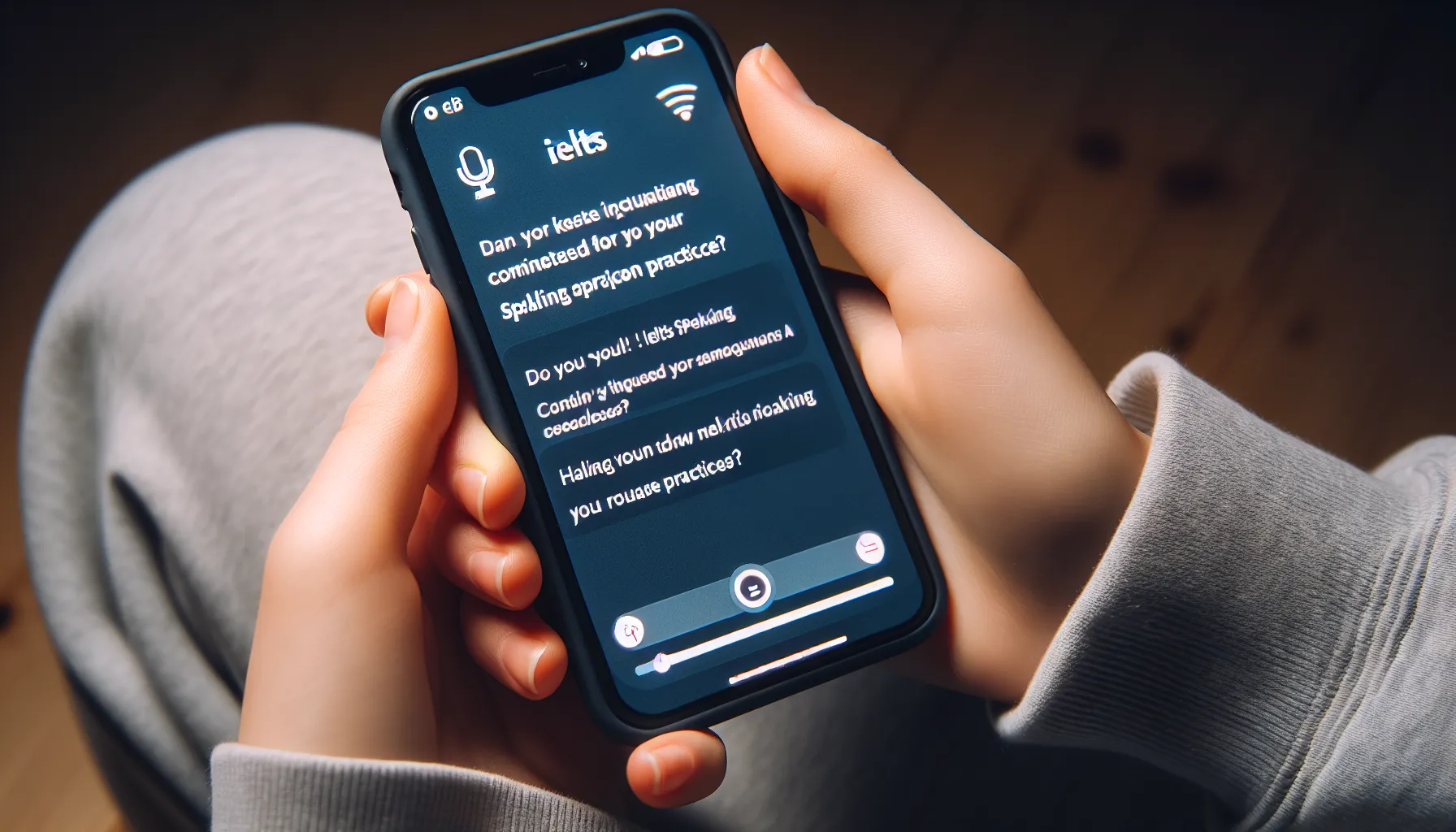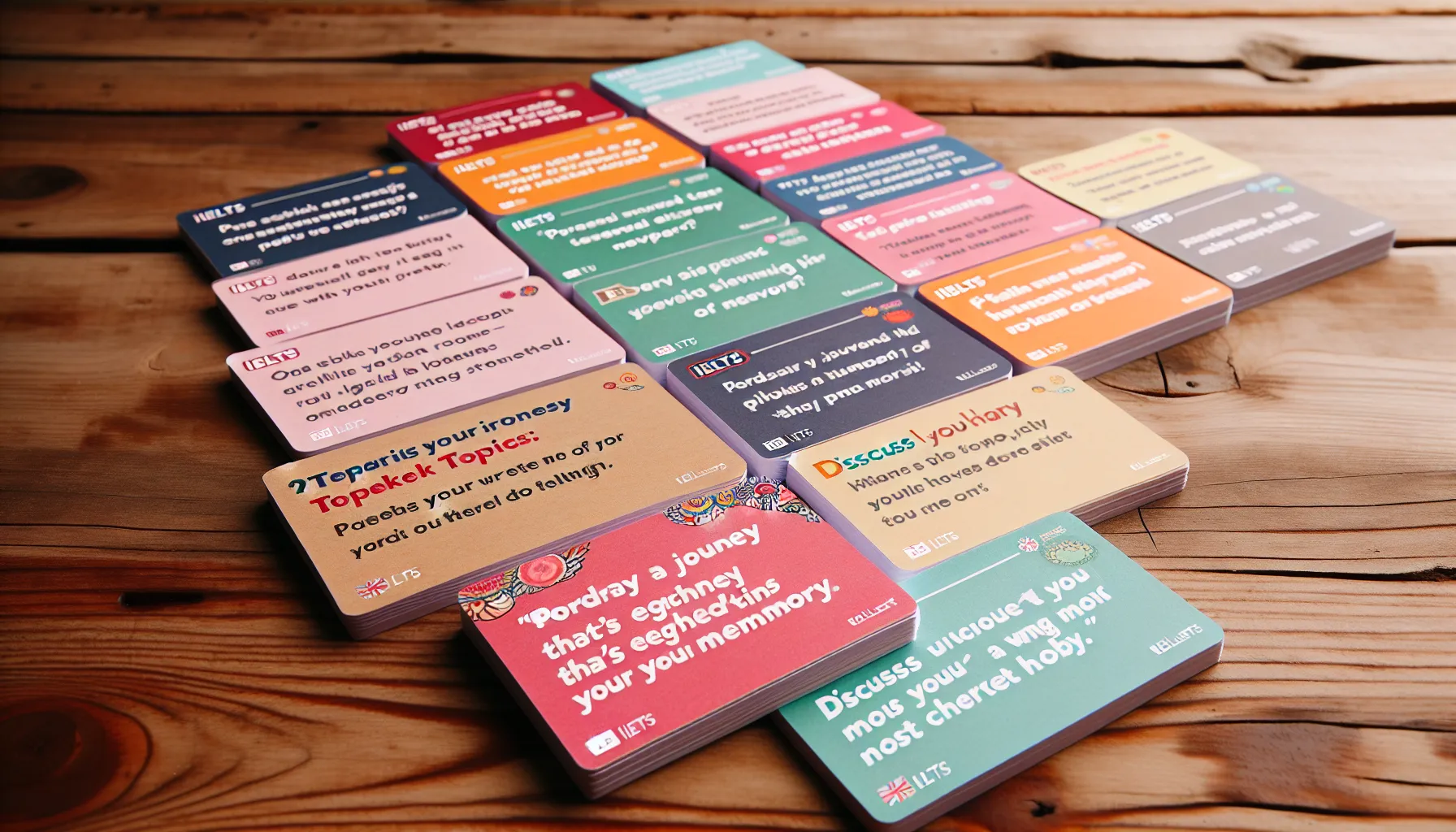Understanding the Challenge of Solo IELTS Speaking Practice
Preparing for the IELTS Speaking test without a practice partner can be daunting. Many candidates find themselves in this situation, whether due to time constraints, location, or personal circumstances. However, with the right strategies and dedication, it’s entirely possible to enhance your speaking skills independently.
 Student practicing IELTS speaking alone
Student practicing IELTS speaking alone
Effective Solo Strategies for IELTS Speaking Improvement
1. Utilize Technology for Self-Recording
One of the most powerful tools at your disposal is your smartphone or computer’s recording function. Here’s how to make the most of it:
- Record yourself answering IELTS Speaking questions
- Listen to your recordings critically
- Identify areas for improvement in pronunciation, fluency, and grammar
- Re-record yourself to track progress over time
This method allows you to become both the speaker and the listener, providing valuable self-feedback.
2. Engage with IELTS Speaking Apps
There are numerous apps designed specifically for IELTS Speaking practice. These apps often include:
- Simulated IELTS Speaking tests
- Question banks for all parts of the speaking test
- Pronunciation guides and exercises
- Vocabulary builders focused on common IELTS topics
By consistently using these apps, you can create a structured practice routine that mimics real IELTS Speaking scenarios.
 Student using IELTS speaking app on smartphone
Student using IELTS speaking app on smartphone
3. Shadow Native Speakers
Shadowing is an effective technique to improve your pronunciation and intonation:
- Find English podcasts, TED Talks, or YouTube videos on IELTS-related topics
- Listen to a short segment (30 seconds to 1 minute)
- Replay the segment and speak along with the speaker, mimicking their rhythm and intonation
- Repeat this process until you can match the speaker’s pace and pronunciation
This method helps you internalize natural speech patterns and improve your overall fluency.
4. Practice with a Mirror
Speaking in front of a mirror can significantly boost your confidence and help you become aware of your body language:
- Stand in front of a mirror and answer IELTS Speaking questions
- Observe your facial expressions and gestures
- Practice maintaining eye contact (with yourself)
- Work on eliminating nervous habits or excessive movements
This exercise not only improves your speaking skills but also prepares you for the face-to-face nature of the IELTS Speaking test.
5. Utilize IELTS Speaking Topic Cards
Create or purchase IELTS Speaking topic cards to simulate Part 2 of the test:
- Randomly select a topic card
- Spend 1 minute preparing your response (as in the actual test)
- Speak on the topic for 1-2 minutes without interruption
- Evaluate your performance, focusing on content, coherence, and vocabulary use
This method helps you develop the ability to speak at length on various topics, a crucial skill for IELTS success.
 IELTS speaking topic cards spread out on table
IELTS speaking topic cards spread out on table
6. Narrate Your Daily Activities
Turn your everyday life into an IELTS Speaking practice session:
- Describe your morning routine as you perform it
- Explain the process of cooking a meal while in the kitchen
- Talk about your surroundings while on a walk
This practice helps you think and speak in English more naturally, improving your ability to discuss common topics fluently.
7. Join Online IELTS Communities
While not a direct replacement for a speaking partner, online communities can provide valuable support:
- Participate in IELTS forums to discuss speaking strategies
- Join social media groups dedicated to IELTS preparation
- Engage in online discussions about various IELTS Speaking topics
These interactions can boost your confidence and provide new perspectives on approaching the speaking test.
Important Considerations for Solo IELTS Speaking Practice
Consistency is Key
Set a regular practice schedule and stick to it. Even 15-30 minutes of focused practice daily can lead to significant improvements over time.
Diversify Your Topics
Don’t limit yourself to a few comfortable subjects. Explore a wide range of IELTS Speaking topics to prepare for any question that may arise during the test.
Focus on Vocabulary Expansion
Actively work on expanding your vocabulary within IELTS-related topics. Use new words in your practice sessions to solidify your understanding and usage.
Seek Occasional Expert Feedback
While these strategies focus on solo practice, it’s beneficial to occasionally seek feedback from an IELTS tutor or experienced speaker. This can help identify blind spots in your self-assessment.
 IELTS tutor providing feedback to student
IELTS tutor providing feedback to student
Next Steps in Your IELTS Speaking Journey
After implementing these solo strategies, consider taking the following steps:
- Take timed mock IELTS Speaking tests to assess your overall readiness
- Practice combining different topics to improve your ability to speak on complex subjects
- Record a full IELTS Speaking test simulation and share it in online forums for peer feedback
- Set specific goals for each aspect of your speaking (fluency, vocabulary, pronunciation) and track your progress
Remember, improving your IELTS Speaking skills without a partner is challenging but entirely achievable. With dedication, creativity, and the right strategies, you can significantly enhance your performance and confidence for the IELTS Speaking test.
[internal_links]
By consistently applying these techniques and maintaining a positive attitude, you’ll be well-prepared to excel in your IELTS Speaking test, even without the benefit of a regular speaking partner. Stay motivated, track your progress, and don’t hesitate to adapt these strategies to suit your personal learning style and needs.


